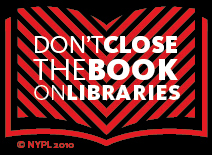
It's a Latin phrase that means "Books have their own fates." I will probably be posting more pictures as it heals more, since there's still a bit of purple in the white ink.
The inspiration for the tattoo came from the excellent book "The Library at Night" by Alberto Manguel -check it out if you get the chance.
While I was home over break, my grandma came up to visit. She, my mom, my sister and I all had sushi (first time for Grandma!) and she brought books for both me and my little sister. Indicative of how well she knows us, she brought my sister religious devotionals and she brought me books that examine religion from historical and scientific perspectives.
She is one savvy lady.
I just finished reading "The Power of Myth" (PoM from now on) by Joseph Campbell and Bill Moyer. The whole book is a transcription of a series of conversations the two men had over a 24-hour period. Apparently there's a 6-hour PBS special out there somewhere from this period, too. I'm not sure whether I would be able to watch all 6 hours, but it would be worth a shot.
PoM is a really interesting book in a lot of ways. Joseph Campbell is obviously a brilliant man. He's very well read, and has a broad, deep understanding of the mythological significance of many religions and stories and cultural ideas from all over the world. Reading this transcription was fascinating -I would shoot through 60 pages over lunch and hardly notice.
Campbell was a professor, a lecturer, which accounts for his ability to hold an audience captive. I've never read anything he wrote, but if he writes as well as he speaks, I would say based on that alone I'd be willing to read it. He is engaging, able to draw connections between ideas at the drop of a hat and just excellent at thinking on his feet. I have no idea how much research or preparation he did specifically for this conversation, but Campbell's intelligence and understanding were nonetheless impressive.
I also like the central message of many of Campbell's views: follow your bliss. What a great sentiment, at its core. Do what makes you happy. I would add a caveat: Follow your bliss, but do no harm to others in seeking it.
All that being said, I did however stop at multiple points during the book and cry "Bullshit!" I realize the man understands way more than I do about world mythologies, but it seems like somewhere between being brilliant and reading myths, he forgot that most people don't think the way he does. Reading Campbell was, for me, like riding a train with sections of the track missing. I'm with him on this point, on the next point and for the next four or five points and then suddenly he's off the rails and I'm left clutching my head, wondering where the logic went.
Perhaps it's me, reading it from my atheistic perspective that I see a huge disconnect between saying myths are great metaphors while living in a world where people see those metaphors as being really literally true and using that as a justification for murder and hatred. It seems as though, in his academic worldview, Campbell neglects the millions of people who see myth as reality (and sometimes it seems like Campbell himself sees myths as being actually true -it's hard to know where the line is in his view, because he waffles quite a bit between arguing that myths are simply metaphors and that myths are actually true in some fundamentally literal way), and who would interpret his words as either a horrifying attack on their beliefs, or a justification of them.
For me, that made the book frustrating at times. Campbell argues a number of points about religious myths that, in their mythical metaphorical way, do a good job of telling a story -but he doesn't ever look beyond that at the faces of people who are saying, "These aren't stories, this is history." There's a huge gap between Campbell's interpretation of myth and the religious interpretation of myth that never gets addressed. It doesn't necessarily have to be addressed, and I'm not saying that majority rule makes one interpretation right as it's possible to interpret myths in about, oh, 6 billion different ways, but it makes the read irritating every now and again.
On the whole, though, PoM was an excellent introduction to Campbell's work. I'm hoping that, as I continue to explore his writing, I'm able to come across a place where he addresses the questions I had about his interpretations of myths vs. established religious dogma. More than that, though, I'm looking for more encouragement to seek out my bliss.


No comments:
Post a Comment